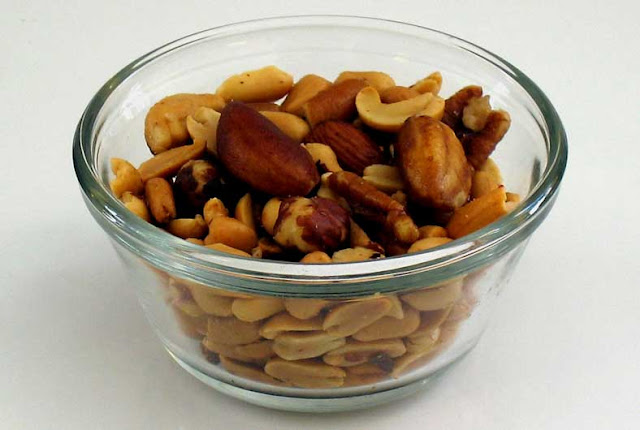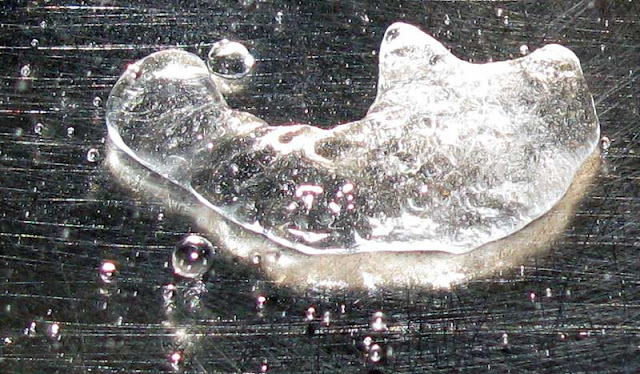1 | Hot or Cold?
Believe it or not, everyone turns out to have different feelings about temperature. For example, when you use a fan in cold air, you will feel cold air from the fan. When you turn off the fan or avoid the fan, the cold air will feel hotter. This happens because our body temperature produces more heat to adjust the temperature cooler than the fan. So that the original cool air temperature will feel warmer because our body is warmer than before. Therefore the temperature cannot be measured based on the human senses but must use a natural temperature measuring aids such as a thermometer.
2 | Hot Water Faster Frozen than Cold Water
This is one unreasonable phenomenon, where the hot water placed on the freezer freezes faster than cold water. This phenomenon was named the Mpemba Effect after a student from Tanzania in 1963 learned that hot ice cream he put in the refrigerator froze faster than the cold one. However, Aristotle was the first to mention this phenomenon in the 4th century AD. The cause is still a mystery. There is a theory which states that rapid evaporation of hot water causes the frozen volume to become smaller so that it quickly freezes. But this theory is still unconvincing. This Mpemba effect is not always the case, but sometimes cold water also freezes faster.
3 | Brazil Nut Effect
This effect is often called the Brazilian Nut's Effect, One strangest phenomenon that we find every day is when a small collection of objects will settle down while a large one will be raised upwards. For example, beans with different sizes we put on our jars we shake, we will find the area under the jar containing small sized beans and then the larger beans. In addition to the examples above, we can also see the above phenomenon from the geological structure of sand deposits and deep earth layers. Why can this phenomenon occur? some suspect because small particles fall in between the larger particles. Others suspect that due to the current and condensation, but unfortunately no one knows for sure the cause.
4 | The faster the harder the collision
Correct thrust is very influential in hard or not impact, but between impact and speed is not directly proportional. For example, there are two motorbikes one speeding at 20 km/h and the other speeding 40 km/h and crashing into a wall simultaneously. Maybe we would think that a motor that travels at a speed of 40 km/hour will get a double power from the speed of 20 km/hour. But the reality is not so, the motorbike will actually get a 4-fold hit. This also applies to the next multiple. That is why traffic accidents are so deadly, especially on toll roads whose speed is above 80 km/hour, once a car crashes it will collapse and even smash into pieces.
5 | Hot Chocolate Effect
This effect is in the form of an increase in the frequency of the sound when tapping a cup of hot chocolate. Another name for this effect is the allassonic effect, first discovered by Frank Crawford in 1982 as a mechanical wave. This phenomenon can also be tested by pouring water from a tap into a glass until the glass contains a collection of white bubbles. Then beat the glass constantly with a spoon to produce a "ting" sound. Observe the resulting tone, initially, the tone is low and will gradually become high until the bubble collection runs out. This anomaly is thought to occur because the speed of the sound slows down when the water contains air bubbles while getting faster when the air bubbles are reduced.
6 | Leidenfrost effect
What do you imagine when water is heated? surely you think the water will evaporate. But that doesn't happen to the Leidenfrost Effect, this effect will keep the water sticking and hovering on the surface. The Leidenfrost effect only occurs when water interacts with the surface of an object that has a temperature that exceeds the boiling point of the water. I was so hot, the bottom water evaporated quickly but the lump of water on it was still cold. This causes the bottom water that should have been evaporated to be trapped by a lump of water above it. This process occurs continuously so that water can only clot and move even without touching the surface. Uniquely the Leidenfrost Effect is often used for performances dipping hands into boiling oil or the attraction of frying by hand.
Read also Phenomena on Earth that Can't Explained With Science





